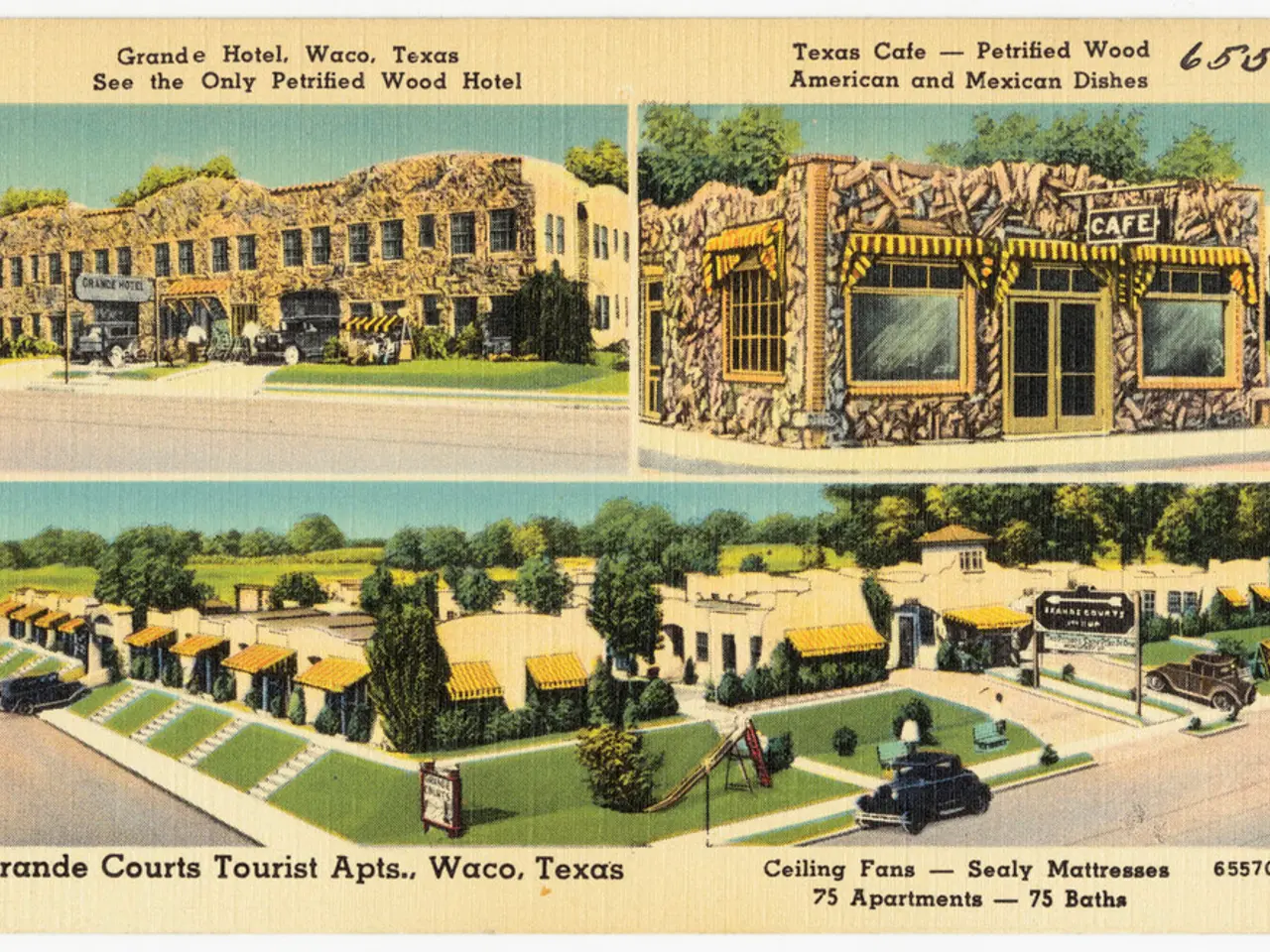Bergen County opts for Avalanche blockchain to digitize a $240 million real estate portfolio, bypassing Cardano and Solana options.
In the Web3 era, real estate asset management is expected to undergo significant transformation through blockchain adoption, as demonstrated by Bergen County, New Jersey's initiative to digitize 370,000 property deeds on the Avalanche blockchain network.
This evolution will centre around enhanced transparency, fractional ownership, liquidity, and decentralized governance. Key expected changes include:
- Tokenization of property titles and deeds: Bergen County’s blockchain-based digitization of property deeds exemplifies a shift towards storing and managing real estate ownership on-chain. This can enable decentralized autonomous organizations (DAOs) to become direct legal owners of properties, eliminating traditional intermediaries such as special-purpose vehicles (SPVs).
- Fractional ownership democratization: Blockchain facilitates breaking high-value real estate into smaller, tradable tokens, lowering barriers to entry for investors. This innovation allows a broader range of individuals to own and invest in real estate assets.
- Increased liquidity and efficiency: Tokenization enhances liquidity in traditionally illiquid real estate markets by enabling easier buying and selling of fractional shares. It also reduces transaction costs and bureaucratic delays by eliminating many intermediaries and promoting real-time verification of ownership and transfer on the blockchain.
- Integration with DeFi and innovative financial models: Real estate tokenization increasingly intersects with decentralized finance (DeFi) mechanisms, allowing new investment opportunities such as yield farming, staking, and decentralized lending on tokenized assets.
- Global access and borderless investing: Blockchain platforms create global marketplaces where investors worldwide can access regional real estate assets that were previously restricted by legal, financial, or language barriers.
The migration of approximately 42 million vehicle titles in California to the Avalanche blockchain network has resulted in a reduction in processing time and a significant decrease in fraud risks. This success demonstrates that blockchain technology can become a global standard in the management of physical assets and legal rights, ushering in a new era of smarter, safer, and more sustainable asset management.
Companies and governments that adopt blockchain technology can offer more efficient, transparent, and accessible services, eliminating traditional barriers and opening new opportunities in the real estate market. The Web3 era, characterized by the convergence of digital and physical assets, allows properties, titles, and legal rights to be tokenized and managed on decentralized platforms, facilitating faster and more secure transactions.
The adoption of blockchain by Bergen County highlights the many innovative use cases of this technology beyond cryptocurrencies and the financial sector. The project aims to modernize Bergen's real estate records and set a national standard for blockchain use in the real estate sector. The initiative promises benefits in security, transparency, and efficiency in managing real estate assets. The adoption of these technologies in the real estate sector is laying the groundwork for a new chapter in the history of real estate management, where trust and agility will be the main drivers of change.
[1] Decentralized Autonomous Organizations (DAOs) and Real Estate Tokenization: A New Era of Property Ownership and Management. (2022). Retrieved from https://www.blockchain-research.org/daos-and-real-estate-tokenization/
[2] The Future of Real Estate Investment: Fractional Ownership and Tokenization. (2021). Retrieved from https://www.forbes.com/sites/forbesrealestatecouncil/2021/02/23/the-future-of-real-estate-investment-fractional-ownership-and-tokenization/?sh=731970af1fc5
[3] The Rise of Real Estate Tokenization: A New Era for Real Estate Investment. (2020). Retrieved from https://www.forbes.com/sites/forbesrealestatecouncil/2020/06/16/the-rise-of-real-estate-tokenization-a-new-era-for-real-estate-investment/?sh=7b160d2e114d
[4] Real Estate Tokenization: The Future of Real Estate Investment. (2021). Retrieved from https://www.investopedia.com/terms/r/real-estate-tokenization.asp
[5] The Impact of Real Estate Tokenization on the Global Market. (2021). Retrieved from https://www.investopedia.com/terms/r/real-estate-tokenization.asp
- The integration of blockchain technology in real estate management allows for the creation of decentralized autonomous organizations (DAOs) that can become direct legal owners of properties, promoting a shift away from traditional intermediaries like special-purpose vehicles (SPVs).
- Fractional ownership in real-estate assets will be democratized as blockchain facilitates breaking down high-value properties into smaller, tradable tokens, lowering barriers for a wider range of investors to own real-estate assets.




